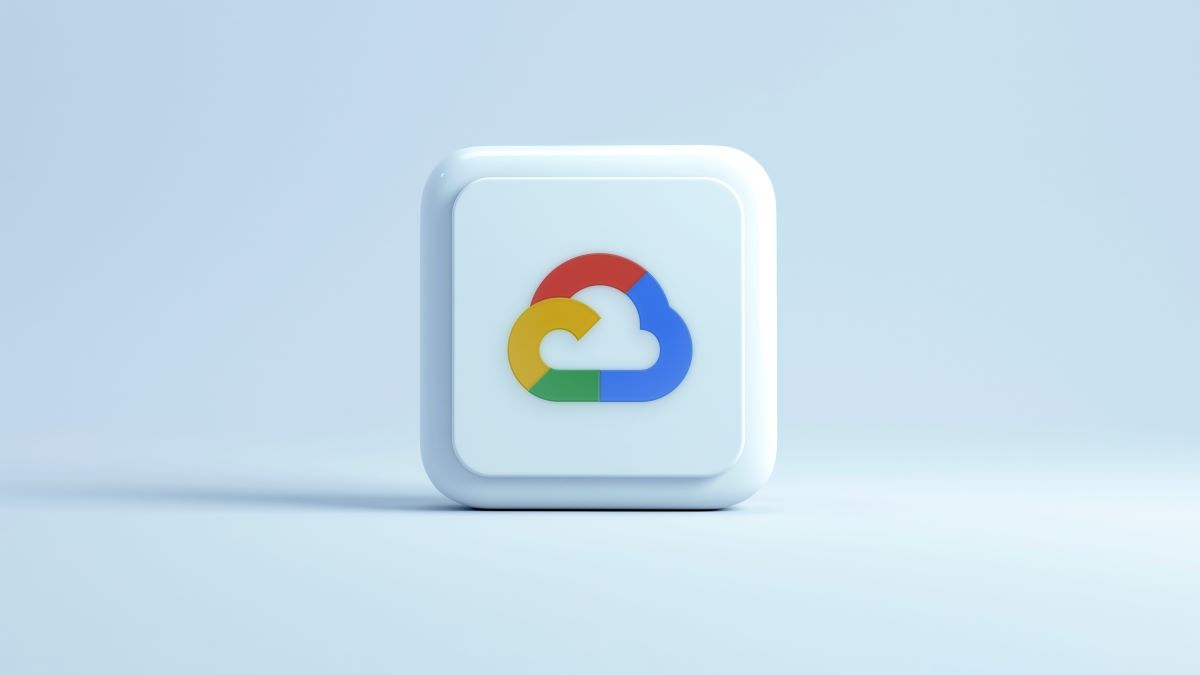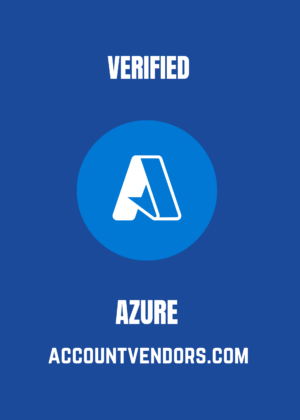Buy Verified Google Cloud Accounts

Google Cloud offers a range of cloud computing services and products through its Google Cloud division, including computing services, storage solutions, databases, machine learning capabilities, and data analytics capabilities. One major player in this space includes Amazon Web Services (AWS) and Microsoft Azure; competing against these offerings, Google Cloud aims to provide a unique experience by offering a comprehensive suite of services, a global network of data centres, and a strong focus on security and sustainability.
Google Cloud offers several vital services and products, such as Compute Engine: This service lets users create and manage virtual machines (VMs) in the cloud, providing access to scalable compute resources suitable for running applications and workloads.
Google Kubernetes Engine (GKE): GKE is a managed Kubernetes service designed to simplify the deployment, management and scaling of containerized applications using Kubernetes.
Google Cloud Storage: With object, block and file storage services provided by Google Cloud, users can store and manage their data effectively in the cloud.
Google Cloud Bigtable: A NoSQL database service explicitly tailored for large analytical and operational workloads, Google Cloud Bigtable provides massive scalability with fully managed support to ensure smooth data access and management.
Google Cloud Spanner: Spanner is a globally distributed and strongly consistent relational database service capable of accommodating both operational and analytic workloads.
Google Cloud SQL: A fully managed relational database service supporting MySQL, PostgreSQL, and SQL Server database engines. Google Cloud Pub/Sub: An event-driven messaging service used for building event-driven systems and real-time analytics applications.
Google Cloud Dataflow: A serverless data processing service designed to quickly process and analyse real-time or batch mode data processing tasks. Google Cloud Machine Learning Engine: An engine for building, training, and deploying machine learning models using Google’s infrastructure and tools.
Google Cloud AutoML: This service empowers developers with limited machine learning expertise to quickly build custom machine learning models for specific tasks like image recognition and natural language processing.
Google Cloud AI: Google Cloud provides an array of AI and machine learning APIs and tools, such as Vision AI, Speech-to-Text API, Translation API and more. BigQuery: An affordable serverless data warehouse designed to run fast SQL-like queries across large datasets quickly.
Google Cloud Identity and Access Management (IAM): IAM provides security and access control for Google Cloud resources, enabling you to assign permissions and roles for users and services.
Google Cloud Functions: A serverless computing service that allows you to respond to events without managing infrastructure by running code directly in response. Google Cloud IoT: Services and tools for building and managing Internet of Things (IoT) applications and devices.
Businesses and organisations of all sizes use Google Cloud to host websites and applications, store and analyse data, run machine learning workloads and more. As it provides a scalable cloud computing platform with access to global data centres for quick deployments and easy administration, it makes Google Cloud ideal for use cases across a broad array of fields.
Google Cloud can bring many advantages to businesses and organisations alike, making it an appealing cloud computing solution choice. Some of its key benefits for the company include:
Google Cloud provides on-demand access to scalable computing resources, giving you the power to scale up or down based on your requirements. This elasticity can help manage traffic spikes more effectively while simultaneously cutting costs during low-demand periods and ensuring responsive applications.
Benefits of Buy Verified Google Cloud Account

Global Network Infrastructure: Google Cloud offers an expansive global network of data centres and edge locations for providing access to your services and data from almost anywhere worldwide with low latency access, high availability and redundancy – giving peace of mind when managing services and data in any location around the globe.
Security: Google Cloud offers a variety of security features and tools, such as identity and access management, encryption, firewall rules, and threat detection. Google has extensive experience securing its services; its expertise extends into protecting Google Cloud as well.
Managed Services: Google Cloud provides a range of managed services, reducing operational overhead while freeing your team to focus on application development and innovation rather than infrastructure maintenance.
Big Data and Analytics: Google Cloud offers powerful data analytics and machine learning tools, such as BigQuery and TensorFlow, to help you unlock insights in your data and make data-driven decisions.
Machine Learning and AI: Google Cloud offers state-of-the-art machine learning and artificial intelligence services, making it possible to develop and deploy AI models for applications like natural language processing, image recognition and predictive analytics.
Serverless Computing: Google Cloud Functions and Run are serverless computing services that make it possible to run code in response to events without managing servers, reducing operational complexity and costs while simplifying operational responsibilities and expenses.
DevOps and CI/CD: Google Cloud offers tools that support DevOps practices, such as Google Kubernetes Engine (GKE), Cloud Build, and Cloud Deployment Manager to automate application deployment, scaling, and management processes.
Cost Management: Google Cloud offers cost management tools and transparent billing that allow you to monitor and optimise cloud spending. Furthermore, sustainable use discounts and committed use contracts provide additional savings opportunities.
Integration With Other Google Services: Google Cloud can easily integrate with other Google services like Workspace (formerly G Suite), Maps and YouTube, enabling you to build comprehensive applications that connect seamlessly. This integration allows you to leverage the unique features of these services, such as real-time collaboration in Workspace, location-based services in Maps, and video hosting and streaming in YouTube, to enhance the functionality of your applications.
Ecosystem and Partnerships: Google Cloud offers an expansive ecosystem of partners – software vendors, system integrators and consulting firms – who can assist in the deployment and optimization of cloud solutions for you.
Google Cloud can help organisations reduce their carbon footprint. Google has pledged to operate its data centres using renewable energy sources and is focused on sustainability. By choosing Google Cloud services for their needs, organisations can contribute towards decreasing their carbon footprint.
These benefits make Google Cloud an appealing solution for businesses seeking to take Advantage of cloud computing while tapping into Google’s expertise and infrastructure. However, the exact outcomes will depend on your organisation’s specific requirements as well as how effectively you utilise its services and resources.
Verified Google Cloud Account For Sale

Setting up a Google Cloud account is a straightforward process that involves several steps.
Here is an outline of what needs to be done to begin using it: Navigating to the Cloud Console: Simply head directly to Google’s Cloud Console with any web browser to access this platform.
Sign In or Create Account: If you already have a Google account (such as Gmail), sign in using your credentials to sign into G Suite. Otherwise, click on “Create account” and follow the prompts to create one and set up your G Suite account.
Billing Information: In order to use Google Cloud services, you’ll first need to set up billing information. That usually involves providing either credit card or bank account details. Google offers a free tier with limited usage limits on specific services; any charges will start accruing once these limits have been exceeded.
After providing billing details, it may be necessary to enable billing on your Google Cloud account. That typically involves agreeing to its Terms of Service and creating a billing account.
Create a Project: When starting up with Google Cloud, resources are typically organised into projects. To get going, you’ll need to create one. Give your project a name and select a billing account as part of its creation.
Once your project has been created, the Google Cloud Console provides a web-based interface where you can manage and configure cloud resources.
Explore and Start Utilising Google Cloud Services: Once your account is set up with Google Cloud, you can begin exploring and using its services. From virtual machines and databases to machine learning tools and more – everything from machine learning tools to machine learning tutorials is offered here to get you up and running quickly with each service. It provides extensive documentation as well as tutorials to get you up and running fast with different services!
Install and Configure the Google Cloud SDK (Optional): If you plan to interact with Google Cloud services using command-line tools, installing and configuring the Google Cloud SDK provides an interface that enables you to manage all of your resources on Google Cloud from a command-line environment.
Set Up Authentication and Access Control (Optional): When working with Google Cloud, authentication and access control may become necessary to safeguard resources. That involves setting up service accounts with specific roles and permissions as well as configuring authentication methods like OAuth 2.0 for each resource you manage.
Remind yourself that Google Cloud services may offer free tiers or trial credits; however, it’s still essential to track your usage and understand each service’s pricing structure in order to avoid unexpected charges.
Before using Google Cloud for production workloads, it’s a best practice to review relevant documentation, best practices, and security guidelines pertaining to your use case. That will enable you to maximise its potential while safeguarding both applications and data security and reliability.
Pros and Cons of Google Cloud : Buy Verified Google Cloud Online
Pros of Google Cloud:
Scalability: Google Cloud offers flexible resources, making it simple to adjust or scale back infrastructure as your application’s demands evolve.
Global Network Infrastructure: With our global data centres and edge locations providing low latency access for international services, Google Cloud account ensures low latency access globally.
Security: Google Cloud provides numerous security features, such as encryption, identity and access management and threat detection, that leverage their expertise in security.
Google Cloud offers various managed services to ease your operational burden and allow you to focus on building and deploying applications more efficiently. Their Big Data & Analytics tools are an ideal way of extracting insights from data.
Machine Learning and AI Services: Gain access to advanced machine learning and AI services that make creating intelligent applications simpler. Serverless Computing Services, Such as Google Cloud account Functions or Cloud Run, allow users to run code without the hassle of managing servers.
DevOps Tools: Google Cloud account offers tools to support DevOps practices, such as GKE and Cloud Build for DevOps practices. In addition, transparent billing and cost control tools help manage and optimise cloud spending.
Integration With Google Services: Seamlessly Integrate with Other Google Services such as Workspace, Maps, and YouTube.
Ecosystem and Partnerships: Take Advantage of our vast Ecosystem of Partners and Third-Party Integrations
Google Cloud account offers several advantages over other cloud platforms. Sustainability: Google has made an effort to use renewable energy in its data centres, contributing to sustainability efforts.
Cons of Google Cloud:
Learning Curve: Due to its vast collection of services and features, newcomers may find Google Cloud intimidating; therefore, there may be an initial learning curve associated with using its services and features.
Pricing Complexity: Pricing can be complex, and it is necessary to monitor usage and unexpected charges carefully. Support Costs: Premium support from Google Cloud may be costly; for lower-tier users, this support may not always be as accessible.
Vendor Lock-In: As with other cloud providers, using Google Cloud may result in vendor lock-in, making migration to another platform challenging. Data Transfer Costs: Transferring large volumes of data in and out of Google Cloud account may incur additional expenses.
Compliance and Regulation: Your industry could require you to meet compliance and regulatory requirements when using Google Cloud. Service Outages: While its infrastructure is highly reliable, all technologies may experience occasional service disruptions.
Geopolitical Considerations: Changes to government regulation or national politics could significantly limit or otherwise prohibit access to Google Cloud account services in certain regions.
Pros and Cons of Google Cloud account Service It is important to remember that the benefits and drawbacks may depend on your particular use case, organisational requirements and expertise. While many organisations find value in using Google Cloud’s innovative technologies, global reach, developer-friendly tools, and cost management features, careful planning and performance monitoring must be performed in order to maximise benefits while mitigating potential drawbacks.
FAQs Google Cloud
Here is a comprehensive list of frequently asked questions (FAQs) related to Google Cloud:
What Is Google Cloud?
Google Cloud offers an expansive suite of cloud computing services and products, from storage solutions and database services to machine learning, data analytics and much more.
How can I set up my Google Cloud account?
To set up your Google Cloud account, visit the Google Cloud Console, create or sign into an existing Google account, provide billing details and start planning a project before using its services.
What Is Google Cloud Platform (GCP)?
Google Cloud Platform (GCP) is Google’s collection of cloud computing services and infrastructure, such as computing, storage, databases and more.\
What is Google Kubernetes Engine (GKE)?
GKE is a managed Kubernetes service designed to facilitate the deployment, management, and scaling of containerized applications using Kubernetes.
What is BigQuery?
BigQuery from Google Cloud account provides a fully managed, serverless data warehouse service designed for performing fast SQL-like queries on large datasets.
How Does Google Cloud Differ From Amazon Web Services (AWS) and Azure (Microsoft Azure)?
Google Cloud, AWS (Amazon Web Services), and Azure (Microsoft Azure) are three leading cloud providers, each offering different services and features that may appeal to other organisations based on unique requirements. Organisations often choose their provider based on price structures or ecosystem support provided.
What Is Serverless Computing on Google Cloud?
Serverless computing in Google Cloud refers to services like Google Cloud account Functions and Run that enable you to respond instantly to events without managing servers; you pay only for compute resources used during execution.
What are the costs associated with Google Cloud?
Google Cloud account offers pay-as-you-go pricing. Customers pay only for resources and services they consume, with prices depending on individual service usage and price points varying accordingly.
How can I secure my resources in Google Cloud?
Google Cloud account provides security features like identity and access management (IAM), encryption, and firewall rules. Authentication and access controls allow you to protect your resources effectively.
What is Google Cloud’s Environmental Commitment?
Google has pledged to operate its data centres using renewable energy sources and is focused on sustainability by minimising its carbon footprint.
Can Google Cloud assist with my machine learning and AI projects?
Yes. Google Cloud offers several machine learning and AI services such as TensorFlow, AutoML and AI Platform that will assist with building and deploying machine learning models.
How Can I Receive Support From Google Cloud?
Google Cloud offers various support plans, from community to premium, with different levels of service and response time options.
What industries and use cases does Google Cloud account serve?
Google Cloud can support an extensive array of industries and use cases, from web hosting and data analysis to machine learning, IoT connectivity and beyond. It serves businesses of all sizes, ranging from startups to enterprises.
What Is Google Cloud Console?
Google Cloud Console is an intuitive web-based interface where you can manage and configure Google Cloud account resources, services and projects.
There are some frequently asked questions about Google Cloud. As it is an extensive platform, the answers may vary depending on your needs and experience with cloud computing. Google’s official documentation and support resources offer further assistance and may answer further queries about its usage.





Reviews
There are no reviews yet.